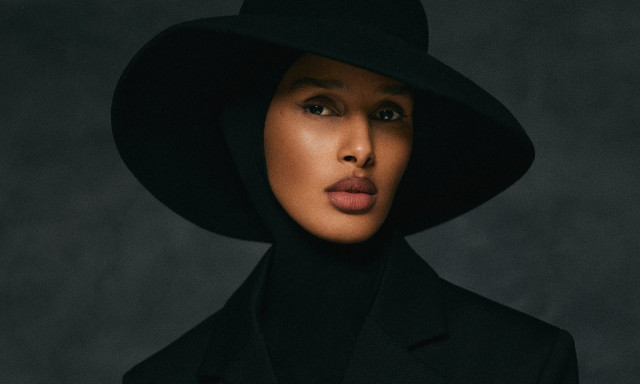Meet Rawdah Mohamed: First hijab-wearing editor at 'Vogue'
A 29-year-old model from Somalia had become the first hijab-wearing fashion editor of Vogue's Scandinavia issue

Rawdah Mohamed, a 29-year-old model, behavior analyst and mother from Somalia, had become the first hijab-wearing fashion editor of Vogue's Scandinavia issue. Her presence within the world of fashion signals an uplifting shift within the industry.
Fleeing from the Somali civil war, Mohamed grew up within a refugee camp in Kenya before moving to Norway with her family when she was nine years old. Her move to Europe marked the beginning of her experience of religious and racial persecution shaped through years of stereotypical perceptions of her religion.
During her school years, Mohamed was bullied by her peers who subjected their taunts and assaults towards her headscarf. When the situation arose to an unavoidable level, her teachers at school decided that the only solution was for Mohamed to stop wearing her hijab.
Mohamed's achievement of becoming a fashion editor of Vogue shimmers a hopeful light, suggesting a more diverse and equal environment within the fashion industry. She addresses the idea of ‘tokenism’, the idea that she was hired based on the diverse value of her external presence.
Speaking to The Times, she shared, "There’s a lot of tokenism in fashion – you’re hired because you tick, say, the Asian box. But one of the things that made me comfortable in this interview process was they knew how I styled and what fashion meant to me and the things that I tried to express through my clothing."
She added, "It wasn’t just like, ‘Oh yay, she’s hijabi and black!’ It was one of the first times I felt I wasn’t there just for decoration, but for what I had to say."
On her social media, Mohamed has spoken about such incidents where she felt her agency to govern her own body and space was threatened.
“Their solution was that I shouldn´t wear the hijab to school. Sitting in a room full of adults discussing my body and what I could and couldn't wear as a young girl left more scarring than the bullying itself," she said. Her early experiences are evident in shaping her activism today, and the hopes with which she enters the world of fashion. She said: 'When I washed my hands, everyone gathered to see if my colour was coming off.'
The Muslim veil or hijab has been instrumentalised as a symbol of oppression on a global scale. Mohamed works to dispel such tendencies, actively seeking to voice her opinion. In April she took to her Instagram page and began the trending ‘Hands Off My Hijab’ hashtag, aiming to discredit the French ban on the Muslim veil, which she defined as a “hateful rhetoric coming from the highest level of government” within her caption.
Within the same post, she discusses her experiences of being bullied and rejected based on her hijab. Her activism is also demonstrated through her daily posts in which she beautifully pairs streetwear with her headscarf, challenging western notions of beauty and aesthetics.
“I strongly believe the only antidote to hate crime is activism. Many governments have been on the wrong side of liberation and equality before”, Mohamed explains in her post.
The intricate relationship between the body and identity plays a pivotal role in today’s world. With the existence of various bodies of power, and the ways in which certain discourses gain momentum enough to become norms, certain bodies are automatically denied a holistic identity. Female bodies, especially those emerging from minority cultures and religions, are often forced to alter their appearance and existence in order to promote the world order and all the hierarchical categorisations that come with it.
The Muslim headscarf remains a highly debated article, even though the debates rarely seem to promote the voices of the women who wear them. In a world where rules concerning female bodies and dressing are decided upon by more powerful groups, the idea of a woman like Mohamed working for Vogue, which is considered the fashion bible of the world, is a necessary step towards a fairer and more equitable future.
In an interview, the model expresses her appreciation for her position, “Vogue Scandinavia has taken the diversity issue to the next step, meaning creating [a] work environment where people of different backgrounds are being valued."
Have something to add to the story? Share it in the comments below.



















COMMENTS
Comments are moderated and generally will be posted if they are on-topic and not abusive.
For more information, please see our Comments FAQ